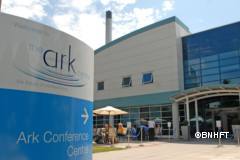
‘Surgery cures more patients than any other intervention’ – Cancer Reform Strategy, Department of Health. 2007 19.
The objective of Pelican Cancer Foundation is to improve the survival and quality of life of bowel, liver and urological cancer patients through research and training of advances in precision surgery. Pelican is dedicated to helping today’s cancer patients.
Pelican’s research is focused on advances in precision surgery for bowel (including pseudomyxoma peritonei and colorectal peritoneal metastases), liver, bladder and prostate cancers. The charity’s research studies will investigate ways to improve survival for today’s cancer patients as well as the quality of life that patients can continue to enjoy after cancer treatment.
Research principles
The following principles guide the charity’s research grants programme:
- Relevance to the surgical cure of bowel, liver and urological cancers and related diseases, in the near future
- Advances in quality of life for bowel, liver and urological cancers
- Excellence, timeliness and originality of science
- Evidence that funding cannot be more suitably obtained elsewhere
- Avoid duplication
- Where possible openly publish and disseminate results of research
Research priorities
- Clinical rather than laboratory based research
- Research that advances precison surgery and treatment
- Studies that include the multi disciplinary perspective
- Relevance to the staging and treatment of bowel cancer, liver metastases and related diseases
- Innovative surgical research
- Research that can lead on to educational programmes for multi-disciplinary cancer teams or surgeons
- Of value to the NHS
Applicants should be aware that, due to limited resources, we do not automatically acknowledge applications and, although we endeavour to process applications as quickly as possible, we are unable to guarantee review completion dates.
The lay summary sections of the application forms are vital to our fundraising activities and must be written for an audience with no scientific background. Please take time to ensure language used in the lay summary is easy to understand and that your explanation is clear, otherwise we will have to ask you to revise this part of your application.
Timing of applications
Funding opportunities will be advertised on the Pelican website and other public sources with a clear timetable. All research proposals will be assessed using the rigorous review process set out in the Association of Medical Research Charities (AMRC) guidelines and best practice.
Types of grant
Grants are available where the principal investigator is based in a recognised research centre, university or hospital. Centres outside the UK may be considered if the applications are partnered with a project within the UK.
The following types of grant are available:
- Pilot or feasibility study
- Small projects
We are particularly sympathetic towards innovative and early stage projects. Applications for grants must be submitted on the appropriate application form.
Submitting an application
All applicants should refer to the terms and conditions before submitting an application. In particular it should be noted that, in line with AMRC guidance, applications should be for directly incurred costs of research only, indirect costs of research will not be met.
The research application must clearly ask a research question that delivers patient benefit and there should be a clear timescale of when this benefit will be available for patients.
The research should be clinical, Pelican is unlikely to support research that requires experimental animals. The study should focus on the research principles and priorities of the charity.
Funding relies on charitable donations and the lay summary is critical and will appear on the charity website. This summary must be a MAXIMUM of 200 words and follow the points laid out in the application.
If subsequent funding will be required it should be made clear where this will be sought and how much it is likely to be.
Application Process
Application timetable September 2016
| Advertise | Triage | Peer Review | Review Panel | Trustees agreement |
| 1 Sept 2016 – 9th Nov 2016 | November | Nov – Feb 2017 | Late Feb 2017 | March 2017 |
Application forms should be emailed to us no later than 9th November 2016. Any forms received after this date will not be considered. Make sure that electronic and mobile telephone contact details are clear on the application form in case we need to contact you about your application.
Peer Review
Peer Reviewers will consider:
- The area of research, the level of activity in the area in the UK and internationally and its international standing
- The importance of the application to the treatment of bowel cancer and liver mets
- Scientific merit of the proposals and if the objectives clear and sound
- If the plan of investigation likely to yield decisive results and, if so, is the timescale realistic?
- Will the trial be able to recruit patients and complete the research in the timescale outlined?
- The suitability of method/techniques proposed
- What is the likely significance to the field?
- The track record of the research for this type of trial
- Are the resources and running expenses requested justified and appropriate
- The likelihood of high impact publications arising from the work, the possible appeal of the work to the general public and potential donors and other issues relevant to the type of work or the subject area
Confidentiality
Applications are considered confidential and all reasonable steps are taken to ensure confidentiality.
Fundraising
Successful applicants may be asked to assist with further fundraising.
Release of funds
Grants will be paid three months in arrears. Continuation of grants is reliant on successful annual reports of agreed targets and outcomes. If the Review Panel deems the research to lack momentum or achievement then grants will not be continued.
Contact Details:
Call us at Pelican Cancer Foundation for more details
